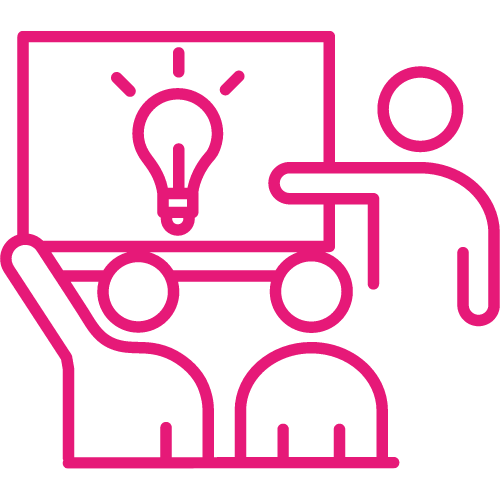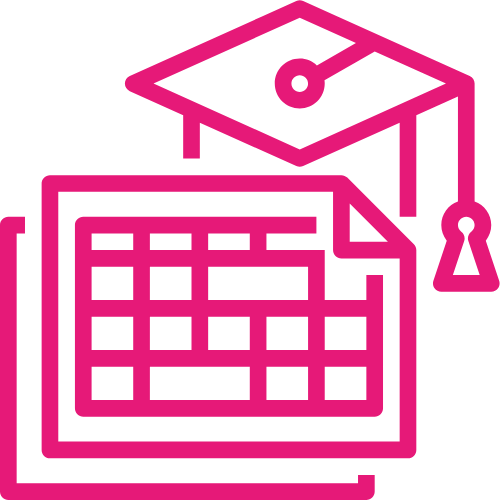Within the new curriculum for Wales guidance are three mandatory cross-curricular skills that are essential for learners. In this blog, we discuss each of the cross-curricular skills and why they need to be pivotal in the school or college’s curriculum.
The Curriculum for Wales lists three cross-curricular skills of utmost importance to all learners:
- Literacy
- Numeracy
- Digital competence
These skills are mandatory and viewed as essential as they enable students to access the range of their school’s curriculum and the opportunities the curriculum offers, equipping them with lifelong skills to help realise the four purposes.
The skills of literacy, numeracy, and digital competence are transferable skills that learners can take into their place of work, enabling them to adapt and thrive as adults.

The Three Cross-Curricular Skills and School Curriculum
Schools and other education settings must ensure they have developed a curriculum that allows learners to develop both competence and capability in these 3 skills. They must also have opportunities to extend and apply these skills across the 6 areas of experience and learning.
Students must be given opportunities across their curriculum to:
- Develop listening, reading, writing, and speaking skills
- Be able to use numbers and solve problems in real-life situations
- Be confident users of a range of technologies to help them function and communicate effectively and make sense of the world
It is vital that all staff understand it is not the sole responsibility of mathematics, language, and computing practitioners to teach these skills, but rather, the three skills should be embedded into the entire curriculum, therefore, it will be the responsibility of all practitioners across all areas to develop and reinforce these skills.
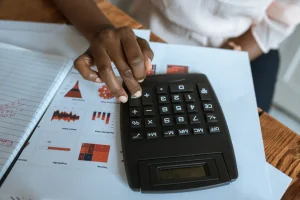
Cross-Curricular Skills Framework
There are two frameworks that sit alongside and align with the Curriculum for Wales guidance;
- Literacy and Numeracy Framework (LNF)
- Digital Competence Framework (DCF)
These two frameworks provide supporting guidance for all teaching professionals, across the 6 areas, ensuring there are ample opportunities for the development of these important skills. The frameworks lay out a common approach supporting education establishments and staff to ensure all students have frequent opportunities to develop and apply these cross-curricular skills across their education.

Literacy and Numeracy Framework
Literacy: Translanguaging
Definition: The act performed by bilinguals of accessing different linguistic features or various modes of what are described as autonomous languages, in order to maximise communicative potential.
Eventually, learners will progress through these steps:
- Understand information presented in one language and convey it in their own words in another
- Receive information in one language and adapt it for various purposes in another
- Apply translanguaging skills to support their learning in known and unknown languages
- Independent identification of translanguaging opportunities to enhance learning and communication
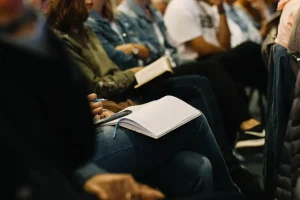
Literacy: Listening
There are many stages to listening that must be considered for learners including:
- Listening for meaning
- Developing vocabulary
- Listening to understand
- Listening as part of collaborative talk
Literacy: Reading
Learners will have the following:
- Phonological and phonemic awareness
- Reading strategies
- Understanding, response and analysis

Literacy: Speaking
Speaking is divided into many subsections including:
- Clarity and vocabulary
- Purpose
- Collaborative talk
- Questioning
Literacy: Writing
Learners will develop skills in the following areas:
- Vocabulary, spelling, grammar
- Connectives and syntax
- Punctuation
- Planning and organising for different purposes, audiences and context
- Proofreading, editing and improving
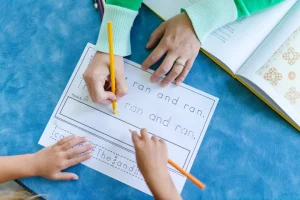
Numeracy: Developing mathematical proficiency
Learners will understand the follow concepts:
- Conceptual understanding
- Logical reasoning
- Fluency
- Strategic competence
- Communicating with symbols
Numeracy: Understanding the number system helps us to represent and compare relationships between numbers and quantities
Learners will have confidence in:
- The number system
- Relationships within the number system
- Calculation
- Financial literacy

Numeracy: Learning about geometry helps us understand shape, space and position, and learning about measurement helps us quantify in the real world
Learners will be able to use these concepts in real life situations:
- Measurement
- Shape and space
- Position
- Angle
Numeracy: Learning that statistics represent data and that probability models chance helps us make informed inferences and decisions
Learners will understand how to:
- Collect data
- Represent data
- Interpret data
The full framework can be found here.
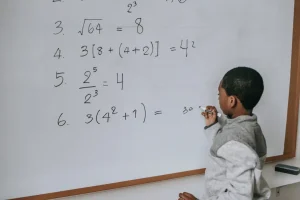
Digital Competence Framework
Citizenship
Learners will be prepared for positive and negative aspects that come with being digital citizens and will understand the following concepts:
- Identity, image and reputation
- Health and well-being
- Digital rights, licensing and ownership
- Online behaviour and online bullying
Interacting and collaborating
Learners will examine the following methods of digital collaboration and ineraction:
- Communication
- Collaboration
- Storing and sharing

Producing
Learners will understand the following digital elements:
- Sourcing, searching and planning digital content
- Creating digital content
- Evaluating and improving digital content
Data and computational thinking
Learners will understand how data and information link to the digital world through these concepts:
- Problem-solving and modelling
- Data and information literacy
The full framework can be found here.
Free eLearning Course
Are you confused about the New Curriculum for Wales? Concerned by the amount of new information you need to digest? We are here to help! On our Equal Academy we have a free online course “New Curriculum for Wales” which breaks down the curriculum into bite-sized, easy-to-digest pieces for all educators

